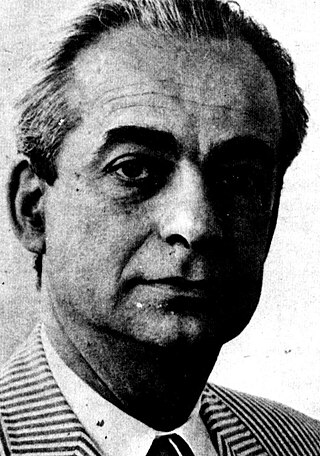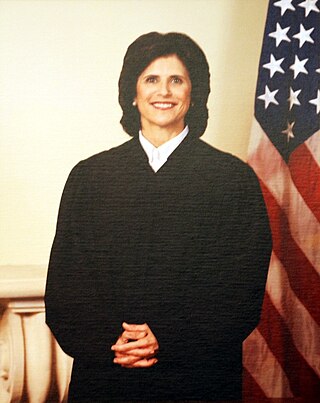Related Research Articles

Insurance is a means of protection from financial loss in which,in exchange for a fee,a party agrees to compensate another party in the event of a certain loss,damage,or injury. It is a form of risk management,primarily used to protect against the risk of a contingent or uncertain loss.
Product liability is the area of law in which manufacturers,distributors,suppliers,retailers,and others who make products available to the public are held responsible for the injuries those products cause. Although the word "product" has broad connotations,product liability as an area of law is traditionally limited to products in the form of tangible personal property.
In law and insurance,a proximate cause is an event sufficiently related to an injury that the courts deem the event to be the cause of that injury. There are two types of causation in the law:cause-in-fact,and proximate cause. Cause-in-fact is determined by the "but for" test:But for the action,the result would not have happened. The action is a necessary condition,but may not be a sufficient condition,for the resulting injury. A few circumstances exist where the but-for test is ineffective. Since but-for causation is very easy to show,a second test is used to determine if an action is close enough to a harm in a "chain of events" to be legally valid. This test is called proximate cause. Proximate cause is a key principle of insurance and is concerned with how the loss or damage actually occurred. There are several competing theories of proximate cause. For an act to be deemed to cause a harm,both tests must be met;proximate cause is a legal limitation on cause-in-fact.
The University of Pennsylvania Carey Law School is the law school of the University of Pennsylvania,a private Ivy League research university in Philadelphia,Pennsylvania. Penn Carey Law offers the degrees of Juris Doctor (J.D.),Master of Laws (LL.M.),Master of Comparative Laws (LL.C.M.),Master in Law (M.L.),and Doctor of the Science of Law (S.J.D.).
In criminal and civil law,strict liability is a standard of liability under which a person is legally responsible for the consequences flowing from an activity even in the absence of fault or criminal intent on the part of the defendant.
The Wharton School is the business school of the University of Pennsylvania,a private Ivy League research university in Philadelphia. Established in 1881 through a donation from Joseph Wharton,a co-founder of Bethlehem Steel,the Wharton School is the world's oldest collegiate business school.

Workers' compensation or workers' comp is a form of insurance providing wage replacement and medical benefits to employees injured in the course of employment in exchange for mandatory relinquishment of the employee's right to sue his or her employer for the tort of negligence. The trade-off between assured,limited coverage and lack of recourse outside the worker compensation system is known as "the compensation bargain.”One of the problems that the compensation bargain solved is the problem of employers becoming insolvent as a result of high damage awards. The system of collective liability was created to prevent that and thus to ensure security of compensation to the workers.

The University of Chicago Law School is the law school of the University of Chicago,a private research university in Chicago,Illinois. It employs more than 180 full-time and part-time faculty and hosts more than 600 students in its Juris Doctor program,while also offering the Master of Laws,Master of Studies in Law and Doctor of Juridical Science degrees in law.
Directors and officers liability insurance is liability insurance payable to the directors and officers of a company,or to the organization itself,as indemnification (reimbursement) for losses or advancement of defense costs in the event an insured suffers such a loss as a result of a legal action brought for alleged wrongful acts in their capacity as directors and officers. Such coverage may extend to defense costs arising from criminal and regulatory investigations or trials as well;in fact,often civil and criminal actions are brought against directors and officers simultaneously. Intentional illegal acts,however,are typically not covered under D&O policies.
Aaron D. Twerski is an American lawyer and professor. He is the Irwin and Jill Cohen Professor of Law at Brooklyn Law School,as well as a former Dean and professor of tort law at Hofstra University School of Law.

Tort reform consists of changes in the civil justice system in common law countries that aim to reduce the ability of plaintiffs to bring tort litigation or to reduce damages they can receive. Such changes are generally justified under the grounds that litigation is an inefficient means to compensate plaintiffs;that tort law permits frivolous or otherwise undesirable litigation to crowd the court system;or that the fear of litigation can serve to curtail innovation,raise the cost of consumer goods or insurance premiums for suppliers of services,and increase legal costs for businesses. Tort reform has primarily been prominent in common law jurisdictions,where criticism of judge-made rules regarding tort actions manifests in calls for statutory reform by the legislature.

Marci Ann Hamilton is the chief executive officer and academic director at Child USA,an interdisciplinary think tank to prevent child abuse and neglect. She is also a scholar of constitutional law and Robert A. Fox Leadership Program Distinguished Scholar and Professor of Practice at University of Pennsylvania with dual appointments to Department of Political Science in Penn's College and Graduate School and Penn's Law School. She is an advocate for the enforcement of the Establishment Clause of the United States Constitution. Hamilton also promotes adequate protection for minors,individuals and landowners who suffer as a result of actions which are claimed to be constitutionally protected on religious grounds. Hamilton is critical of provisions within Federal and State Religious Freedom Restoration Acts.

Harry Kalven Jr. was an American legal scholar known for his scholarship on tort law and United States constitutional law. He was the Harry A. Bigelow Professor of Law at the University of Chicago Law School,having graduated from the College and the Law School. Kalven coauthored,with Charles O. Gregory,a widely used textbook in the field of torts,Cases and Materials on Torts. Kalven was also a scholar in the field of constitutional law,particularly in the area of the First Amendment. Kalven is the coauthor of "The Contemporary Function of the Class Suit," one of the most heavily cited articles in the history of American law,and widely considered to be the foundation of the modern class action lawsuit. He also co-authored a pioneering empirical study of The American Jury with his Chicago colleague Hans Zeisel.
The Arbitration Roundtable of Toronto is made up of several litigators,academics,arbitrators,and mediators from the Greater Toronto Area. The group promotes arbitration as an alternative method of conflict resolution over litigation,especially in commercial suits. Members include commercial litigators from Toronto law firms including some of the Seven Sisters of Bay Street. Each member has experience and interest in promoting commercial Arbitration. The group dedicates its time to encouraging this form of Dispute resolution through seminars,papers,and talks.

Sarah Elizabeth Savoia Vance is a senior United States district judge of the United States District Court for the Eastern District of Louisiana.
Kyle D. Logue is an American legal scholar on private law. He is the Douglas A. Kahn Collegiate Professor of Law at the University of Michigan Law School. He was appointed to serve as interim dean of the Law School effective January 1,2024,until a permanent dean is appointed. From 2006 to 2016,Logue was the Wade H. and Dores M. McCree Collegiate Professor of Law.
Michael Andrew Fitts is an American legal scholar. He serves as the current president of Tulane University in New Orleans,Louisiana and the Judge Rene H. Himel Professor of Law at the Tulane University School of Law.
Mark V. Pauly is an American economist whose work focuses on healthcare management and business economics. He is currently the Bendheim Professor in the Department of Health Care Management at the Wharton School of the University of Pennsylvania. Pauly is a former commissioner on the Physician Payment Review Commission,and has been a consultant to the Congressional Budget Office,the Office of the Secretary of the U.S. Department of Health and Human Services,the American Enterprise Institute,and served on the Medicare Technical Advisory Panel. He is also the Co-Editor-in-Chief of the Springer journal International Journal of Health Care Finance and Economics,and was formerly the Robert D. Eilers Professor from 1984 to 1989.

Ariel Porat is the president of Tel Aviv University (TAU),a full professor and former dean at TAU's Buchmann Faculty of Law. Until his appointment as president,he was a distinguished visiting professor of law at the University of Chicago Law School. He is a member of the Israel Academy of Sciences and Humanities,incumbent of the Alain Poher Chair in Private Law at TAU,and recipient of The EMET Prize for Art,Science and Culture for Legal Research.
Deborah N. Archer is an American civil rights lawyer and law professor. She is the Jacob K. Javits Professor at New York University and professor of clinical law at New York University School of Law. She also directs the Center on Race,Inequality,and the Law and the Civil Rights Clinic at NYU School of Law. In January 2021,she was elected president of the American Civil Liberties Union,becoming the first African American to hold the position in the organization’s history.
References
- 1 2 "Tom Baker". www.law.upenn.edu.
- ↑ "Restatement of the Law, Liability Insurance". www.ali.org. American Law Institute. Retrieved February 5, 2023.
- ↑ "LSA's 2024 Harry J. Kalven, Jr. Prize". www.law.upenn.edu. Retrieved 2024-10-09.
- ↑ Tennison, Crissonna (2024-05-30). "LSA Announces 2024 Annual Award Winners". Law and Society Association. Retrieved 2024-10-09.